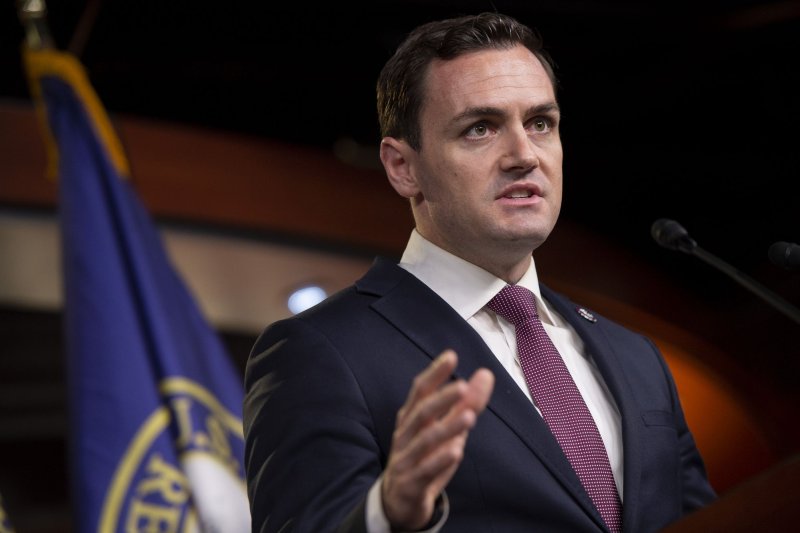The House Energy and Commerce Committee on Thursday approved a bill that would ban TikTok from American app stores unless its China-based parent company sells the app.Rep. Mike Gallagher, R-Wis., head of the House Select Committee on the Chinese Communist Party and co-sponsor of the bill, said it would not place a total ban on TikTok. Rather, it puts the onus on parent company ByteDance to either sell the app or face a ban on U.S. devices. File Photo by Bonnie Cash/UPI |
License PhotoMarch 7 (UPI) — Lawmakers are renewing a challenge to one of the world’s most popular social media apps over national security concerns.
The House Energy and Commerce Committee on Thursday unanimously approved a bill that would ban TikTok from American app stores unless its China-based parent company ByteDance sells the app.
If signed into law, the bill would give ByteDance 165 days to spin off TikTok. The bill also contemplates similar prohibitions on apps “controlled by foreign adversary companies.”
TikTok is one of the most prolific social media apps in the United States, with more than 150 million monthly users. The app’s popularity has led to concerns among lawmakers and national security officials that the Chinese Communist party could use the app to access American users’ information.
Company CEO Shou Chew testified to a congressional panel last year that the app does not share user information with the Chinese government, but he did say the app had collected data from American users in the past and some data was still on servers that ByteDance could access.
Rep. Mike Gallagher, R-Wis., who heads the House Select Committee on the Chinese Communist Party, said the new bill would alleviate national security concerns while protecting Americans’ free speech rights.
“If you value your personal freedom and privacy online, if you care about Americans’ national security at home, and, yes, even if you want TikTok to stick around in the United States, this bill offers the only real step toward each of those goals,” Gallagher said.
The bill has so far advanced with bipartisan support. Lawmakers from both parties have expressed concern that TikTok could be forced to hand over data collected from American users to the CCP, which in turn could use the information for espionage purposes.
Rep. Frank Pallone, D-N.J., cited concerns from national security officials during a private hearing Thursday morning.
“I take the concerns raised by the intelligence community this morning very seriously,” he said. “They have asked Congress to give them more authority to act in these narrowly defined situations, and I believe that this bill will do that.”
TikTok responded to the bill by issuing a pop-up campaign urging users to call their representatives to stop a “total ban” of the app. Multiple House GOP staffers said their offices have been bombarded by calls in the wake of the campaign.
Gallagher, however, said TikTok’s characterization of the bill as a “total ban” is false.
“If you actually read the bill, it’s not a ban. It’s a divestiture,” he said, arguing the bill puts the decision “squarely in the hands of TikTok to sever their relationship with the Chinese Communist Party.”
After clearing the House Energy and Commerce Committee Thursday, the bill now must clear the full House.
House Speaker Mike Johnson, R-La., gave his support for the bill, saying in a statement to Politico, “It’s an important bipartisan measure to take on China, our largest geopolitical foe, which is actively undermining our economy and security.”
Efforts to ban TikTok began under the Trump administration, which used a series of executive orders to try to compel ByteDance to spin off the app. ByteDance sued the Trump administration in 2020, and efforts prohibiting public access to the app until now have stalled.
Congress in 2022 banned TikTok from being downloaded on federal devices, and the U.S. military prohibited personnel from using it years earlier.

